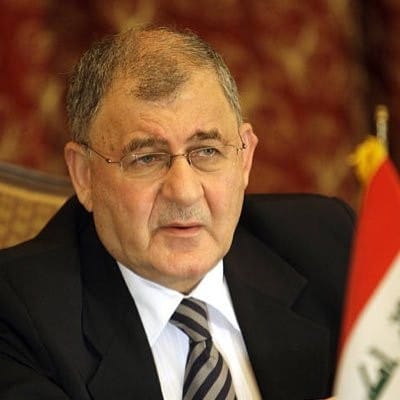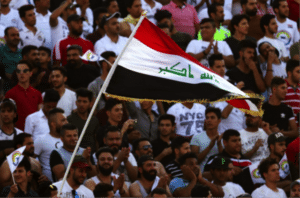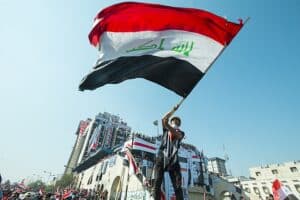New Iraqi President Abdul Latif Rashid in October 2022 (source: Wikimedia Commons)
After more than 12 months of political deadlock, Iraq finally has a new president and a new prime minister. Lawmakers elected Kurdish politician Abdul Latif Rashid as Iraq’s new president. Subsequently, Rashid immediately named Shia politician Mohammed Shia al-Sudani as the country’s prime minister-designate. The election of Rashid and al-Sudani paves the way for the formation of a new government, following a year of political unrest.
Power-sharing system
In Iraq’s political system of power-sharing, the presidency is reserved for a Kurdish candidate, the premiership is designated for Shia factions, and the speaker of parliament is traditionally Sunni. The presidency was the subject of contestation between the two main Kurdish parties, namely the Kurdistan Democratic Party (KDP), that nominated Rashid, and its challenger, the Patriotic Union of Kurdistan (PUK).
Rashid and al-Sudani have been involved in Iraqi politics for a long time. Rashid served as minister of water resources and has been a presidential adviser since 2010. Al-Sudani rose to prominence under prime minister Nuri al-Maliki, while he was serving as minister of social affairs, human rights, and industry.
Rival Shia factions
Al-Sudani was nominated for the position of prime minister by the Iran-backed Shia Coordination Framework. This parliamentary bloc has clashed with the Shia faction of political leader Muqtada al-Sadr, the winner of the national elections in October 2021. Al-Sadr attempted to form a majority coalition ever since, but failed to do so, due to disagreements with the Shia Coordination Framework. The political leader aimed to form a government with the Sunni Taqadoom party and the Kurdish KDP, which would side-line the powerful Coordination Framework.
The disagreement between the two rivalling Shia blocs paralyzed Iraqi politics since October 2021 and erupted in violent clashes this summer. In June, al-Sadr demonstratively ordered his 73 parliamentarians to hand in their resignation, out of frustration with the ongoing gridlock. When his rivals claimed these seats for their own candidates that had come in second in the elections, al-Sadr called for holding new elections. When both his rivals and his former allies refused, he ordered his supporters to storm parliament, which led to violence.
“Not meet the people’s aspirations”
With the election of Rashid and al-Sudani, the country may have found a way out of this political gridlock. Al-Sudani now has a month to form a new government, after which a vote of confidence will take place in parliament. This would mark the end of the longest period without a cabinet in Iraqi history.
However, the reaction of al-Sadr and his loyal supporters remains uncertain. Both Rashid and al-Sudani are associated with Iran-backed former prime minister al-Maliki, a long-time opponent of al-Sadr. For now, the Sadrist bloc has refused to join the new government. Al-Sadr accused the incoming government of having “a clear subordination to militias” and said that it would “not meet the people’s aspirations”. A Sadrist official made clear that the faction refused to take part in any government led by al-Sudani “or any other candidate from among the old faces or those affiliated with the corrupt”. In the past, al-Sadr has turned to violence to express his discontent.
Additional crises
In addition to the political instability of the past year, Iraq is confronted with several other crises. The country is plagued by high youth unemployment rates, power shortages, widespread distrust towards the political elites, a weak economy and crumbling public services. One third of the Iraqi population is currently living in poverty. Moreover, the political paralysis of the past year has incapacitated parliament’s ability to meet the Iraqi people’s needs, blocking important bills from passing. The election of a new president and a prime minister may prove to be a way out of the ongoing political stalemate. At the same time, it may lead to further clashes between al-Sadr and rival Shia militias. The political future of Iraq remains highly unpredictable.
Sources: Al Jazeera 1, Al Jazeera 2, Al Jazeera 3, Al Jazeera 4, De Volkskrant 1, De Volkskrant 2
Photo: Wikimedia Commons



